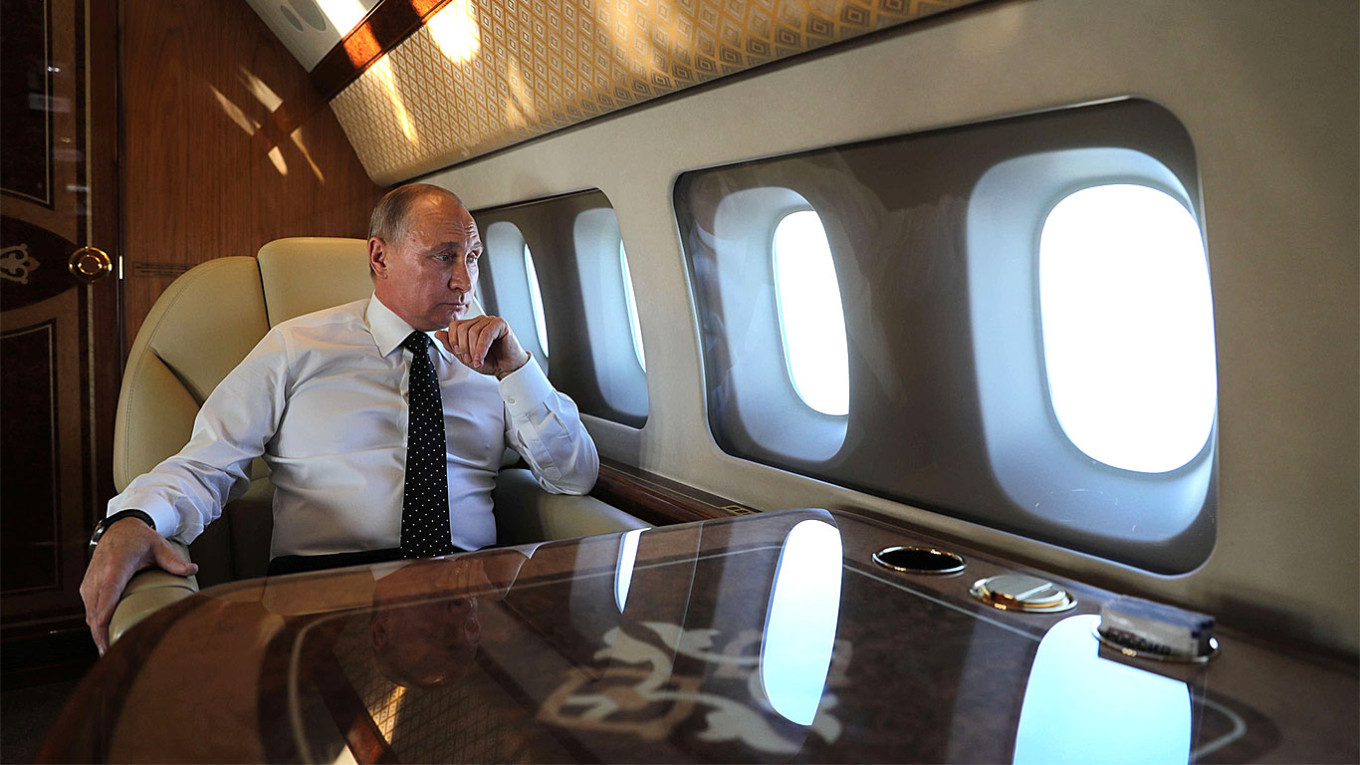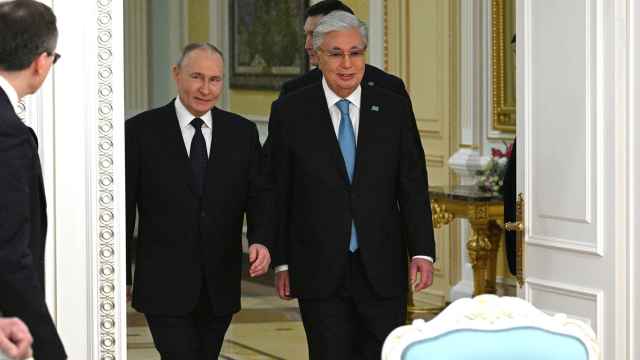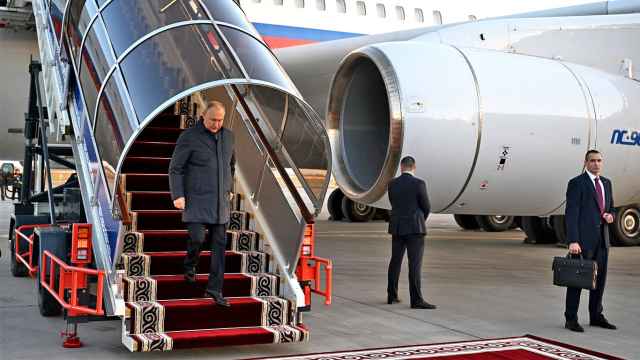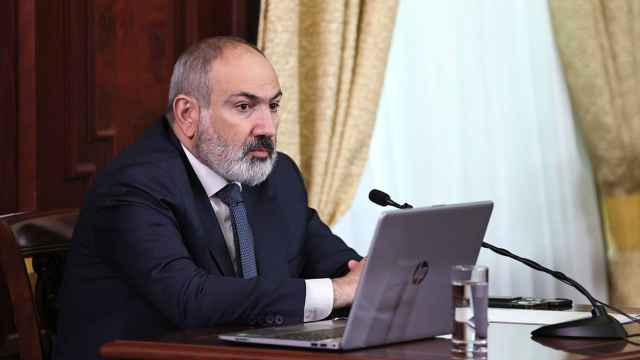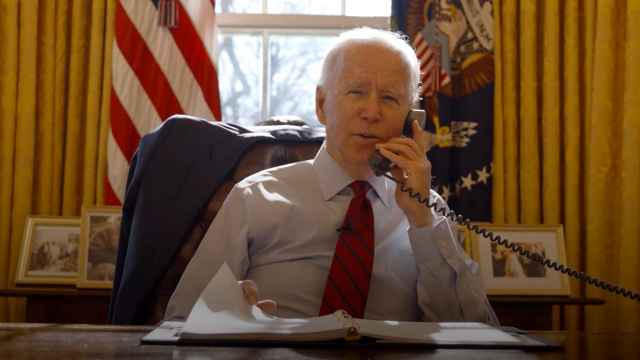Russian President Vladimir Putin will attempt to shore up Russia’s regional authority on a visit Friday to the Central Asian state of Kyrgyzstan for a summit of a Moscow-led trade bloc, analysts and an ex-official told The Moscow Times.
The war in Ukraine has not only led to Western sanctions on Russia and wide-spread condemnation from international bodies, but has even seen Moscow’s influence wane in its own backyard.
“Putin is used to being a welcome guest at all events with everyone wanting to take a picture with him and shake his hand,” said former Russian diplomat Boris Bondarev who resigned from the Foreign Ministry following the invasion of Ukraine.
“But now, as it were, he is in isolation,” he told The Moscow Times.
In the Kyrgyz capital Bishkek, Putin is due to take part in a session of regional trade bloc the Eurasian Economic Union (EAEU) with the leaders of Armenia, Belarus, Kyrgyzstan, Kazakhstan and Uzbekistan.
The meeting could be particularly difficult given recent drone strikes — apparently ordered by Kyiv — on Russian airfields hundreds of miles from the Ukrainian border, according to Andrei Kortunov, the head of Russian International Affairs Council.
“The background [to the talks] will be more nervy because of the recent incidents,” Kortunov told The Moscow Times.
“The threat of escalation not only remains, but there is a risk that it could grow.”
In addition to the fallout from the Ukraine war, regional leaders in Central Asia and the South Caucasus are likely worried they could incur secondary Western sanctions if they are seen to be helping Moscow gain access to banned goods.
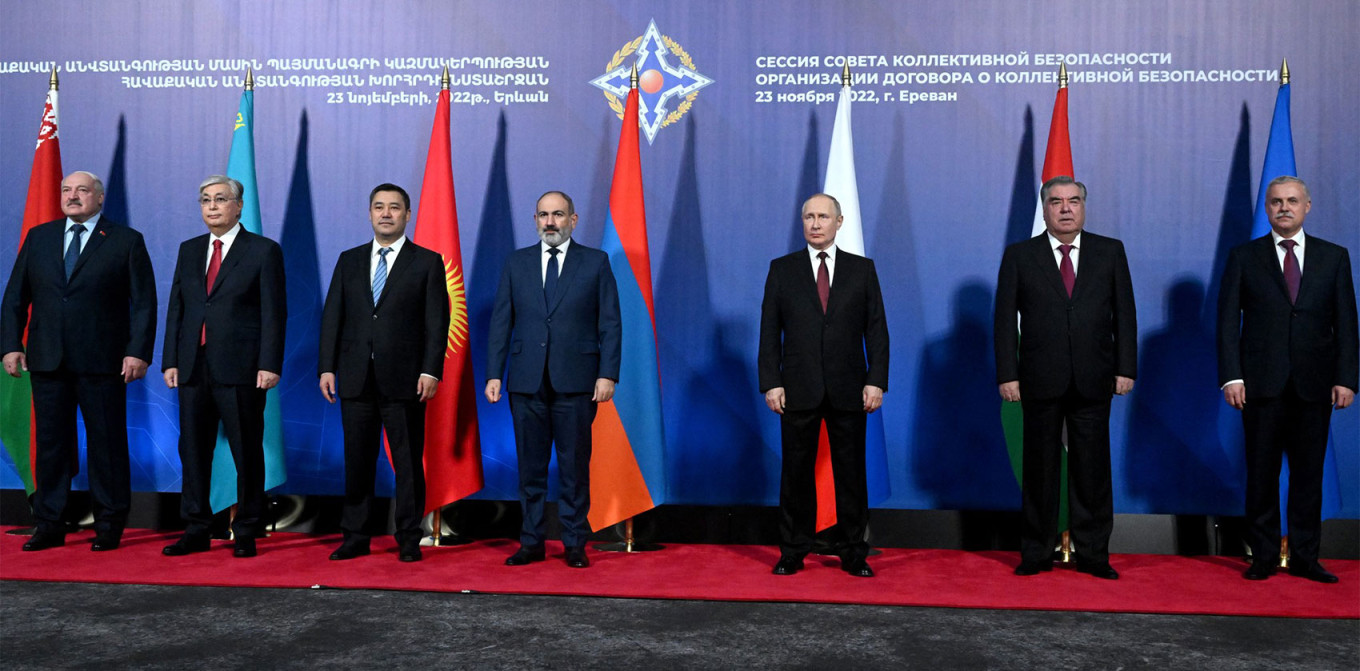
Reports suggest countries including Armenia and Kazakhstan are already playing major roles in Russia’s illicit “parallel export” scheme, which allows Russian companies to acquire products not originally intended for the Russian market.
In Bishkek, Putin will be keen to persuade members of the EAEU not to take any steps to block Russian efforts to circumvent Western sanctions, according to Alexander Gabuev, an expert on Russia foreign policy in Asia.
“This is very important for the Kremlin from a practical point of view,” he said.
At the same time, there will likely be discussions of mechanisms to allow Russia to bypass EAEU customs controls, according to Gabuev.
The Kremlin will be hoping that Friday’s meeting will be more successful than other recent regional summits, which have highlighted Russia’s declining influence.
The annual gathering of the Collective Security Treaty Organization (CSTO), a Russian-led security bloc, in the Armenian capital Yerevan in late November was marred by Armenian Prime Minister Nikol Pashinyan’s refusal to sign the final declaration.
In addition, Putin’s presence in Armenia was met with anti-war protests involving both Armenian citizens and emigrants from Russia.
Perhaps because of events in Yerevan, the authorities in Bishkek last month extended a ban on public protests in a central part of the city until December.
The failure of the CSTO meeting means there is particular pressure on Putin to show in Bishkek that Russia-centric regional groupings are not falling apart amid the Ukraine war, according to Gabuev.
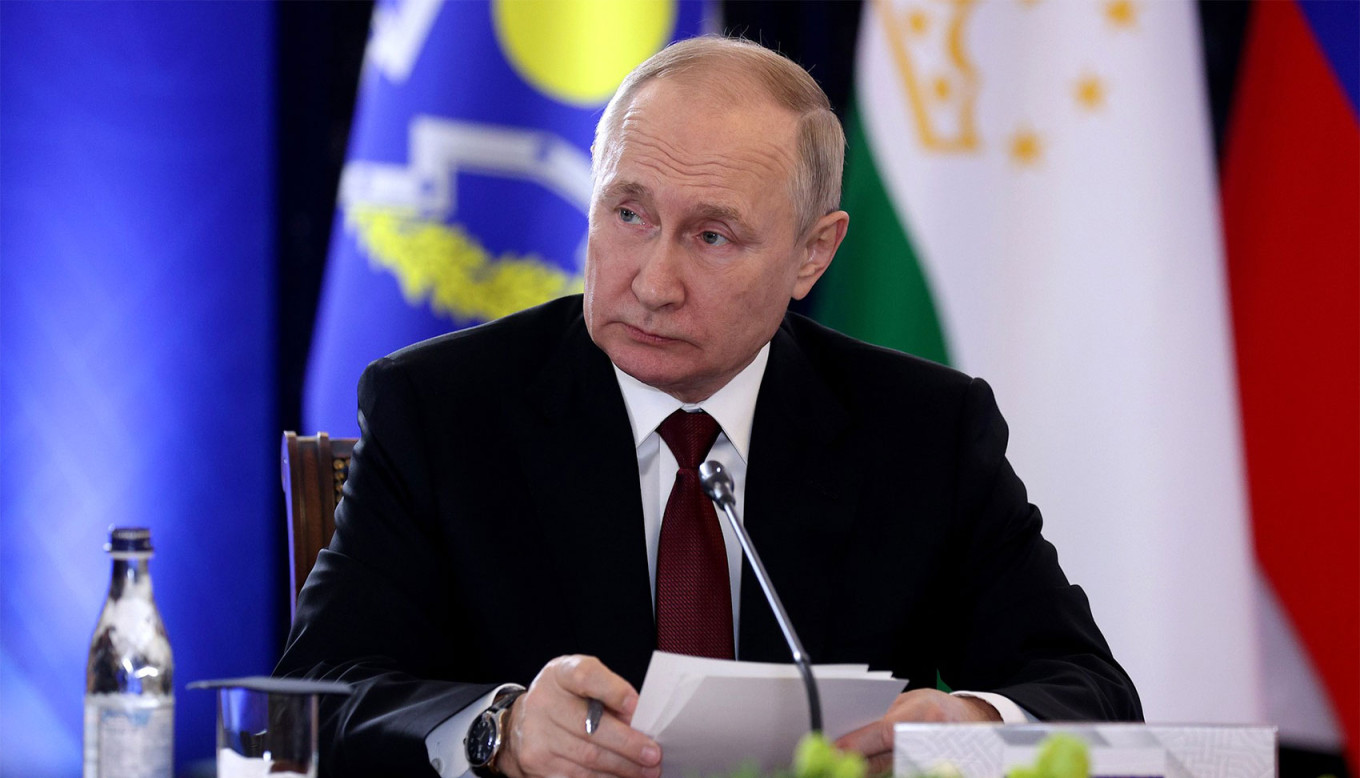
However, the CSTO gathering has not been Putin's only foreign policy reversal in recent months.
In September, the Russian leader found himself left waiting for meetings with his counterparts from Turkey, Azerbaijan, India and Kyrgyzstan at a Shanghai Cooperation Organization (SCO) meeting in Uzbekistan’s Samarkand. Russia was also chided for starting the Ukraine war by both India and China at the event.
A change in how the Russian president is perceived was particularly evident during the Samarkand summit, according to ex-diplomat Bondarev, who pointed to Putin being met at the airport by Uzbekistan’s prime minister — not the president.
Likely fearing isolation, Putin declined to attend the G20 summit in Bali in mid-November.
However hard Putin tries in Bishkek, some experts believe that there is little Russia can do to force Central Asia countries to deepen their cooperation with Moscow.
Kazakhstan, Uzbekistan and other nations will continue to distance themselves politically and economically from Russia as long as the war continues, Moscow-based Central Asia analyst Arkady Dubnov told The Moscow Times.
A high-profile failure in Bishkek runs the risk of further deepening Russia’s diplomatic isolation
“There are not many multilateral formats left in which Moscow can demonstrate its leadership,” said Kortunov.
A Message from The Moscow Times:
Dear readers,
We are facing unprecedented challenges. Russia's Prosecutor General's Office has designated The Moscow Times as an "undesirable" organization, criminalizing our work and putting our staff at risk of prosecution. This follows our earlier unjust labeling as a "foreign agent."
These actions are direct attempts to silence independent journalism in Russia. The authorities claim our work "discredits the decisions of the Russian leadership." We see things differently: we strive to provide accurate, unbiased reporting on Russia.
We, the journalists of The Moscow Times, refuse to be silenced. But to continue our work, we need your help.
Your support, no matter how small, makes a world of difference. If you can, please support us monthly starting from just $2. It's quick to set up, and every contribution makes a significant impact.
By supporting The Moscow Times, you're defending open, independent journalism in the face of repression. Thank you for standing with us.
Remind me later.



